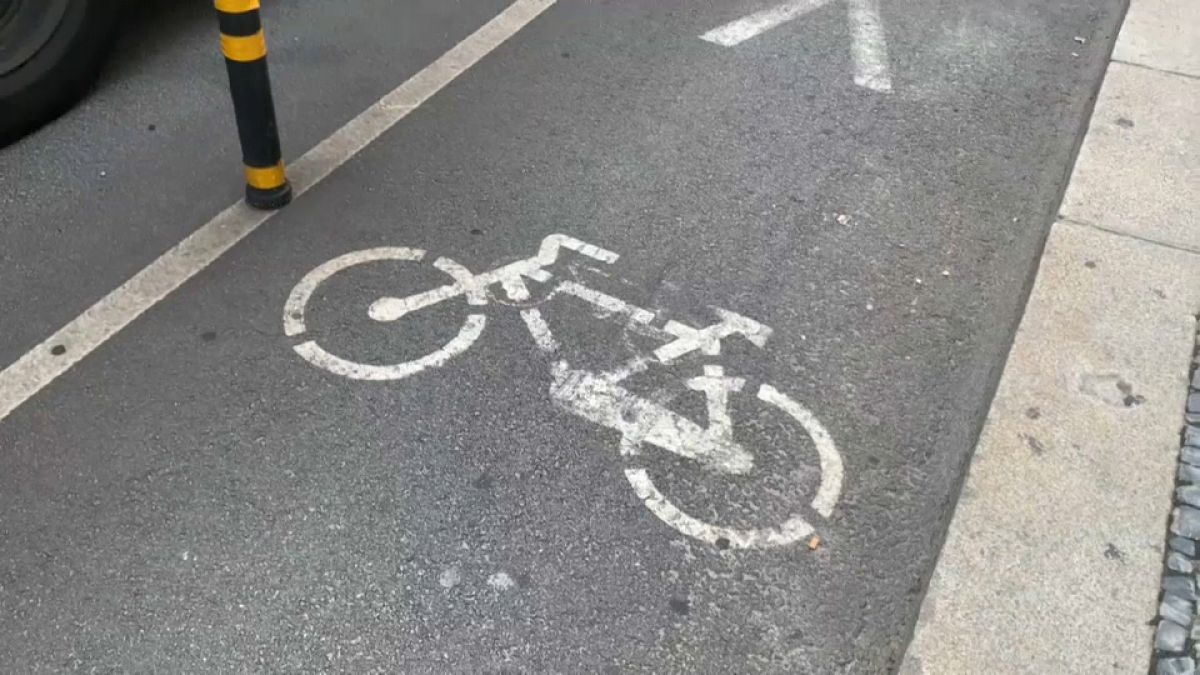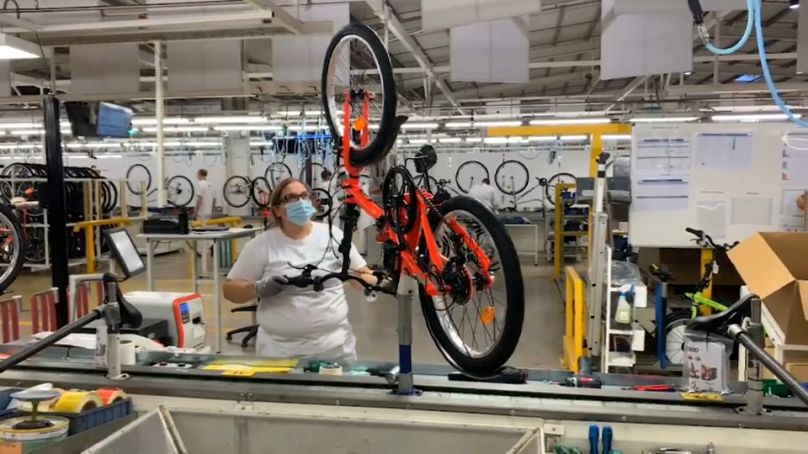Portugal is Europe's top bicycle producer, but lags behind many places in terms of domestic riders. Filipa Soares investigates why - and what's being done to address that.
Portugal has ridden out on top as the largest producer of bicycles among the European Union's member states.
The country produced nearly 2.7 million bikes last year, overtaking Italy who were leaders in 2018.
While most of these Portuguese-produced bikes are still being exported to other European countries, green initiatives in two of Portugal's biggest cities are hoping to encourage locals to put on a helmet and get cycling.
1.2 million of the bikes from the 2019 total were made by the company RTE. They have Europe's largest bicycle assembly plant at Vila Nova de Gaia in northern Portugal.
While plenty of bikes are made on site, around 95% of them are exported - mainly to France, Spain, Germany and Poland.
RTE Executive Director Bruno Salgado admits that there's still a step-change in attitude that needs to happen regarding bike useage in the Portuguese mindset: “The bicycle in Portugal is still a product very much associated with leisure and sport - and very little with day-to-day transport and with supporting our daily lives.”
Bikes are actually not a particularly common sight in Portugal’s cities compared to many other locations. A tiny 0.4% of people took trips on a bike around Lisbon and Porto in 2017, according to the National Institute of Statistics.
Cars are still leading in terms of transport methods – they accounted for almost 60% per cent of travel in the capital and 68 percent in Porto, according to Eurostat.
Marcos Schlickmann from the Association for Urban Mobility in Bicycles says Portugal certainly lags behind: "We don't have adequate infrastructure and there are a lack of bike paths as well as places to park bikes safely.
"Average car speeds are also very high. Sometimes there's not much respect from motorists either. They're just not used to seeing bikes.
"We've been advising some town halls and we've been talking to many city councils, to try to bring up these issues and discuss cycle path plans and activities with schools."
There are signs though that the country is moving in the right direction: Porto should finish the city's first cycling network before the end of the year and it will be more than 50 kilometres long.
Lisbon meanwhile should have 200 kilometres of cycle path by the end of 2021.


